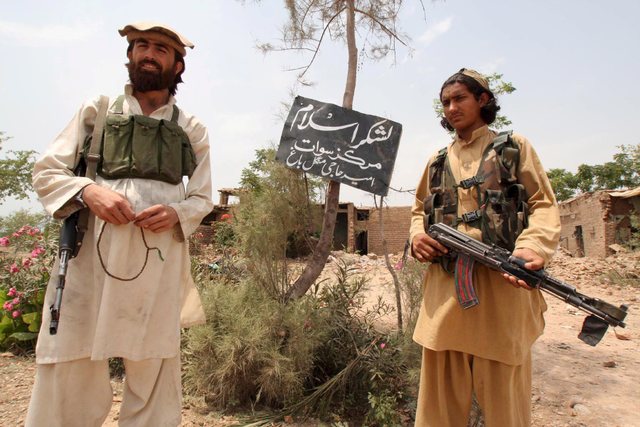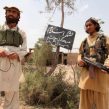
Local Militants Struggle with Taliban Government for Control of Pakistan’s Khyber Agency
Publication: Terrorism Monitor Volume: 7 Issue: 24
By:

Pakistani security forces have not yet established their writ in parts of the volatile Khyber tribal agency. Despite a drawn out military operation dubbed Sirat-e-Mustaqeem (Straight Path), the wary Islamist militants are still at large. Some call it a friendly game of hide-and-seek, others call it a staged drama, yet over 600 people have been killed in the fighting. Several thousand more have been displaced due to the exchange of fire between the Taliban and Pakistani security forces.
Last year, the government claimed to have killed or seriously injured Mangal Bagh – the leader of Lashkar-e-Islam (LeI)—described as a Robin Hood-like character who has gathered several thousand disaffected people around him. Mangal Bagh is still alive and dwelling in the Tirah Valley, where he controls most parts of the agency. Mangal Bagh does not allow his organization to be aligned with the Baitullah Mahsud-led Tehrik-e-Taliban Pakistan (TTP), but has imposed the same strict Shari’a rules in those parts of the Khyber agency under his control. Anybody who is not wearing a head covering has to pay a fine of 100 rupees. He has also imposed a jazia (also called a jizya, or protection tax) for the non-Muslim communities living in Khyber. Each non-Muslim individual has to pay him 1000 rupees annually, with exceptions for women, children and the handicapped (Daily Mashriq [Peshawar], June 2).
In the government’s fresh offensive against Mangal Bagh’s LeI, Pakistani gunship helicopters pounded their positions in the Tirah Valley (35 km southwest of Landi Kotal, the main town in the Khyber region) and claimed to have killed over 20 Taliban as well as destroyed four LeI “hideouts.” These included a mosque near Bara and a camp allegedly used to train suicide bombers (Daily Times [Lahore], July 28; Dawn [Karachi], July 27). However, very few people believe the latter claim to be true, as Lashkar-e-Islam does not support suicide bombings. The LeI is considered to be a pro-government militant organization that asks its fighters not to attack military convoys and government installations.
Control of the Khyber Agency is important for both the Taliban and the government. The main land route to Afghanistan and the Central Asian states is via the Khyber Pass, now a vital supply route to U.S. and NATO troops in Afghanistan. The TTP have sought control of this route to gain political and economic leverage. Several times, TTP leaders have tried to align their movement with Mangal Bagh’s LeI, but each time Mangal Bagh has refused to approve a merger with the TTP. Despite their internal rivalries and fierce clashes, the three main militant groups in the Khyber Agency, Lashkar-e-Islam, Ansar-ul-Islam and Amr bil Ma’ruf wa Nahi Anil Munkar (Promotion of Virtue and Prevention of Vice), have all kept their distance from the mainstream TTP. Local people say the Pakistani establishment has been guiding, supporting and fueling differences among the Khyber’s militants to use them as a buffer against TTP operations targeting the Khyber Pass supply route.
Since late 2005, Lashkar-e-Islam and Ansar-ul-Islam have used pirate FM channels to wage a fierce war of words, but the government has remained a silent spectator unless the broadcasts have resulted in a full-fledged battle on the ground. The LeI preached a Sunni Wahhabi version of Islam, while Ansar-ul-Islam propagated Sufi Islam. The Amr bil Maruf wa Nahi Anil Munkar group has maintained its own identity, though it has the same ideology as Bagh’s LeI and the TTP. Its founder and leader, Haji Namdar, was assassinated last year in Bara by a young man allegedly sent by Baitullah Mahsud’s group to eliminate him (The Nation [Islamabad], August 14, 2008). Baitullah’s deputy, Hakimullah Mahsud, based in the neighboring Kurram tribal agency, took responsibility for Namdar’s assassination. The main reason for their rivalry was Haji Namdar’s refusal to allow the TTP access to the strategically important Khyber region.
Despite the efforts of the so-called pro-government and anti-Baitullah militant groups, the TTP has made inroads and extended influence in the Khyber agency through an Afghan national, Commander Rahmanullah, who took the position in late 2008 after his predecessor Mohammad Yahya Hijrat (a.k.a. Kamran Mustafa Hijrat) was arrested in Peshawar by Pakistani security forces (The News, December 10, 2008). Yahya Hijrat, also an Afghan national, was a deputy to Hakimullah Mahsud and was assigned responsibility for attacking trucks loaded with supplies for U.S. and NATO forces in Afghanistan. Last December, his men attacked and burnt to ashes more than 300 vehicles destined for NATO troops in Afghanistan while they were parked in a terminal in Peshawar (see Terrorism Focus, January 21). The attacks continue; on July 17 an oil tanker was destroyed in the Jamrud district of the Khyber Pass, with the resulting fire destroying 20 shops and killing a fruit vendor (Daily Times, July 18). A second tanker was damaged by a bomb the same day near Landi Kotal (BBC, July 17).





